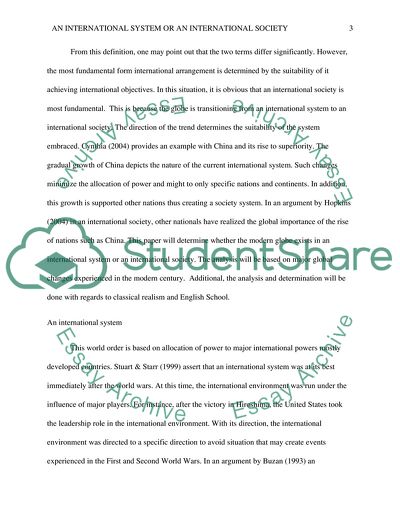Cite this document
(“International society and system Essay Example | Topics and Well Written Essays - 2750 words”, n.d.)
International society and system Essay Example | Topics and Well Written Essays - 2750 words. Retrieved from https://studentshare.org/history/1637930-international-society-and-system
International society and system Essay Example | Topics and Well Written Essays - 2750 words. Retrieved from https://studentshare.org/history/1637930-international-society-and-system
(International Society and System Essay Example | Topics and Well Written Essays - 2750 Words)
International Society and System Essay Example | Topics and Well Written Essays - 2750 Words. https://studentshare.org/history/1637930-international-society-and-system.
International Society and System Essay Example | Topics and Well Written Essays - 2750 Words. https://studentshare.org/history/1637930-international-society-and-system.
“International Society and System Essay Example | Topics and Well Written Essays - 2750 Words”, n.d. https://studentshare.org/history/1637930-international-society-and-system.


